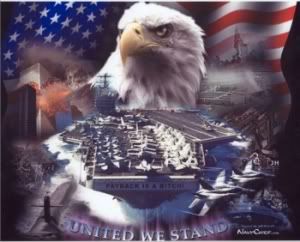The Making of Amerexico
The Making of Amerexico
(Mis)Handling Illegal Immigration
Peter Andreas
Even as old walls have been torn down with the end of the Cold War, governments are scrambling to build new ones. These new walls are being erected, not between geopo- litical blocs, but between lands of affluence and lands of poverty. The perceived threat? Not a military invasion--an immigrant one. As millions of people around the globe increasingly defy national boundaries in search of better lives, pressure has mounted on governments to impose more restrictive entrance controls. Their attempts to regu- late the mass movement of people across bor- ders contrasts sharply with their push toward highly deregulated flows of informa- tion, goods, and services in an increasingly integrated global economy.
In the United States, the quintessential nation of immigrants, the influx of new arri- vals has sparked a growing nativist back- lash. While a Gallup poll in 1965 showed that only 33 percent of Americans believed too many immigrants were entering the country, the number increased to 42 percent in 1977, 49 percent in 1986, and 65 per- cent in the summer of 1993. 1 In a Newsweek poll in late July 1993, 59 percent of respon- dents said immigration was good for Amer- ica in the past, but 60 percent thought it was a bad thing today. 2 While most immi- grants arrive legally, national attention and frustration have focused on those who come without a formal invitation. No one really knows how many people are in the United States illegally, but official estimates put the number somewhere above 3 million, with hundreds of thousands more entering each year.
The tension between government restric- tions and illegal entry is sharpest along the 1,945-mile border the United States shares with Mexico, the longest point of contact be- tween a developed and a developing country in the world. Each year, the U.S. Border Pa- trol apprehends about one million people at- tempting to enter the United States from Mexico. 3 Border apprehension rates have in- creased by a multiple of 15 over the last 30 years.
As political pressure has mounted to "do something" about illegal immigration, lax border control has been targeted as the source of the problem. Sen. Alan Simpson (R- WY) has put it rather starkly: "The first duty of a sovereign nation is to control its bor- ders. We do not.... Uncontrolled immigra- tion is one of the greatest threats to the future of this country." 4 This sentiment ech- oes the warning voiced by former CIA direc- tor William Colby in the late 1970 s: "The most obvious threat [for the U.S.] is the fact that...there are going to be 120 million Mexicans by the end of the century....[The Border Patrol] will not have enough bullets to stop them." 5 The influx of illegal drugs across the border in recent years has only re- inforced such "fortress America " sentiments and has been used to justify introducing the military and the National Guard along the border. The missions of drug control and im- migration control have consequently be- come increasingly intertwined.
While government officials rush to barri- cade our border with Mexico, their fight to lower economic barriers along that same border stands in sharp contrast.
More @ http://tinyurl.com/q9b5j questia
You will note that this was published in 1994 and the alarm was sounded as far back as the 1970's and still nothing has been done.
I begin to believe that the Fed's intend on doing nothing and that this is just another chapter in the book of the 'New World Order'. That new world where national boundaries don't exist and world government overrides all national interests. I also believe the people pulling 'the strings of the puppet politicians in this are the multinationals, the bankers, and business in general'.
It would be so interesting to come back 100 years from today and see how this has all played out. IMO, we're headed for a civil war in this nation unless something concrete is done and done quickly.
























<< Home